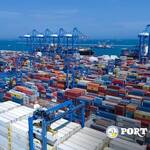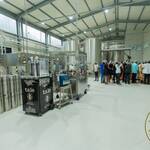The Government is pursuing an Economic Enclave Project to provide support for the cultivation of up to 110,000 acres of land in the Greater Accra, Ashanti, Central, Savannah and Oti Regions.
The initiative, under the Ghana CARES Programme, seeks to expand the production of rice, tomato, maize, vegetables and poultry.
Agriculture and food processing
Government is looking to shift some of that economic activity away from consumption toward agriculture and food processing.
Mr. Ken Ofori-Atta, the Finance Minister, who disclosed this in the 2023 Budget Statement and Economic Policy said the initiative was being led and coordinated by the Millennium Development Authority (MiDA) in collaboration with other Government institutions.
The institutions are: the Ministry of Food and Agriculture (MoFA), Ministry of Energy, Ghana Irrigation Development Authority (GIDA), 48 Engineers Regiment of the Ghana Armed Forces (GAF) under the Ministry of Defence, the National Entrepreneurial and Innovation Programme (NEIP) and the National Service Secretariat (NSS).
The Ghana CARES Programme is a GH¢100 billion development initiative designed by the Government to mitigate the economic challenges brought on by the coronavirus pandemic.
It is meant to stabilise, revitalise and transform the country’s economy to create jobs and prosperity for the citizenry over a three-year period, with focus on commercial Farming, light manufacturing, fast-track digitisation, housing and construction.
Mr. Ofori-Atta indicated that the Economic Enclave Project would engage interested private sector actors to expand agricultural production and processing in the Asutuare-Tsopoli Economic Enclave area based on a partnership framework.
The same approach will be adopted for the lands secured in the Ashanti, Central, Savannah and Oti Regions.
Local organic fertilizer production plants
The Minister said government is facilitating the establishment and the expansion of local organic fertilizer production plants with support from the EXIM Bank.
Government has to make strenuous efforts to meet import bill, which exceeds $10 billion annually.
Cost of importing some product
Per data from the Ghana Trade Advocacy Network, values for various products imported includes tin tomatoes-$1 billion, rice-$800 million, Sugar and confectionery-$300 million, flour-$600 million, poultry and meat-$400 million , fish-$245 million, fresh tomatoes from Burkina Faso – $100 million and toilet rolls and tissue-$100 million.
The rest are cooking oil-$300 million, pharmaceutical and chemicals-$750 million, soaps and cosmetics, plastics-$500 million, paper-$600 million, tiles and ceramics-$200 million, iron and steel products-$600 million, cars and spare parts-$2 billion, furniture-$250 million, textiles and apparel-$250 million, home appliances-$900 and beverages-$200 million.
If the country had added value to half of the primary commodities exported, the proceeds from exports could be in folds and help in creating tens of thousands of jobs to address the rising unemployment crisis
Strategic shift to correct decades-old dependency on imports
Government is undergoing a strategic shift o correct a decades-old dependency on imports.
Import substitution policies
The country is revisiting and possibly strengthening its import substitution policies to eventually increase food production, chiefly of chicken, rice, sugar and tomatoes among others.
Ofori-Atta said Ghana currently has the capacity to locally produce items that account for about 45% of the value of annual imports.
These include rice, fish, sugar, poultry, cement, pharmaceuticals, jute bags, computers among others.
The Minister said government will target these products for import substitution by supporting the private sector, through partnerships with existing and prospective businesses to expand, rehabilitate and establish manufacturing plants targeted at producing these selected items.
It is expected that these 2023 Budget policies will help transform Ghana into a production and export oriented powerhouse in the sub-region.




